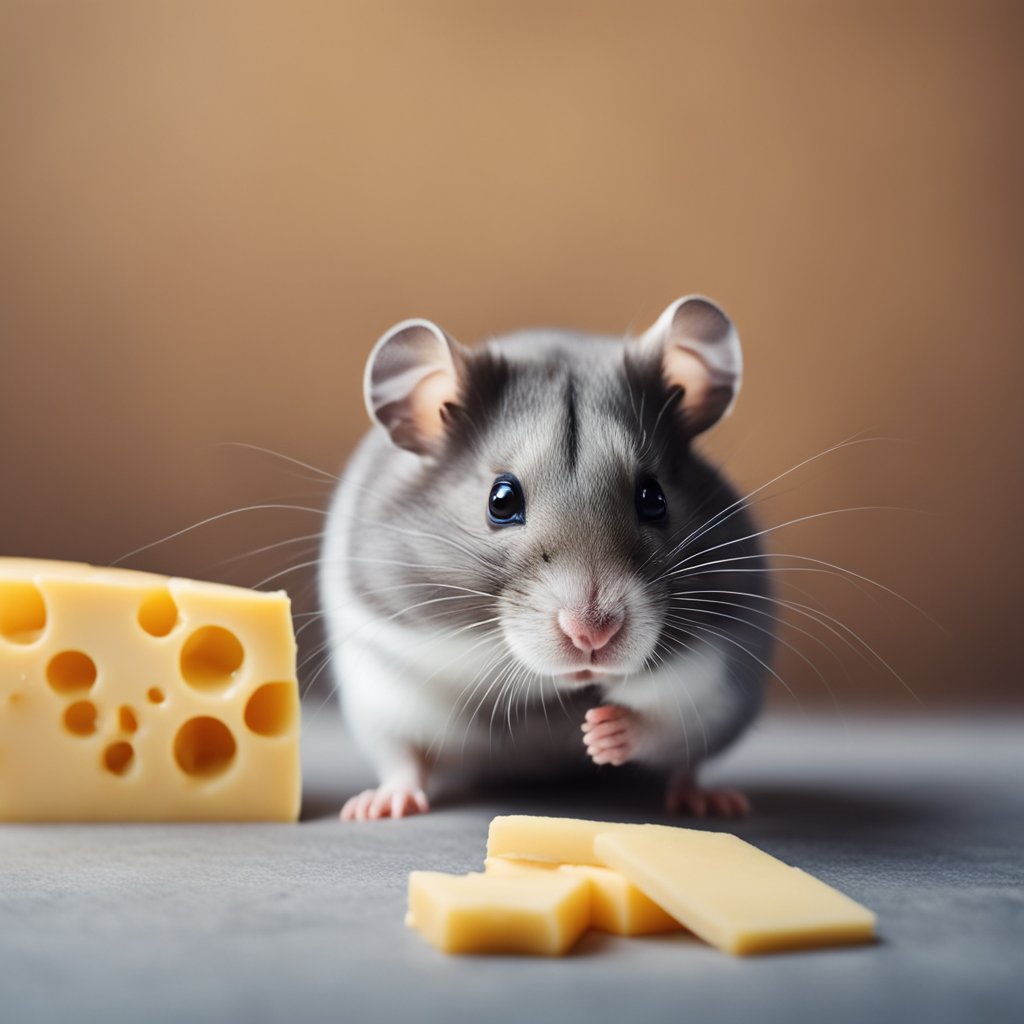Is Cheese Poisonous to Hamsters? What You Need to Know
If you’re a hamster owner, you might be wondering if cheese is a safe food to give to your furry friend. Cheese is a popular snack for humans, but not all foods that are safe for us are safe for our pets. So, is cheese poisonous to hamsters? The answer is no, cheese is not toxic to hamsters. However, there are some things you should keep in mind before feeding cheese to your hamster.
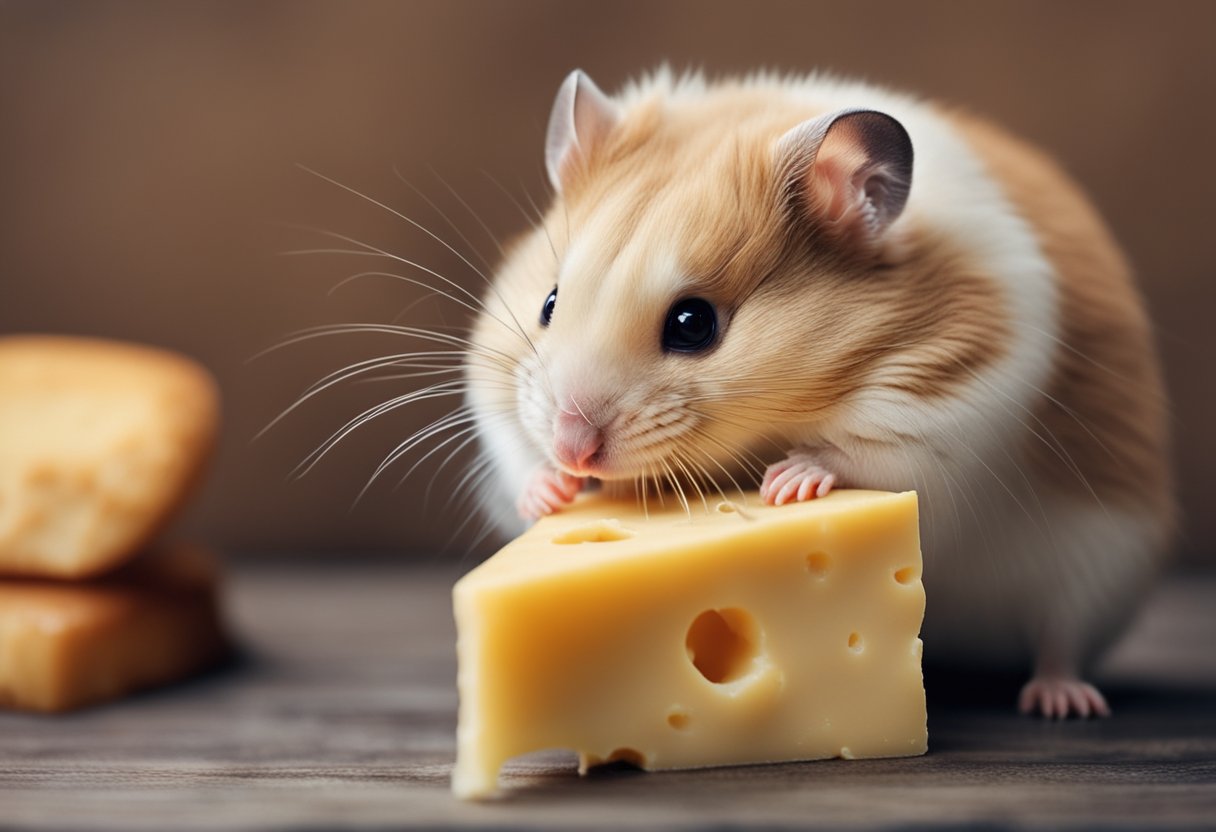
Hamsters are prone to obesity and diabetes, so it’s important to feed them a balanced diet. Cheese is high in fat and calories, so it should only be given to hamsters in moderation. Additionally, some hamsters may be lactose intolerant and may experience vomiting and diarrhea after eating cheese or other dairy products. It’s important to monitor your hamster’s reaction to cheese and other foods to ensure they’re not experiencing any adverse effects.
In summary, cheese is not poisonous to hamsters, but it should be given in moderation and with caution. It’s important to monitor your hamster’s reaction to cheese and other foods to ensure they’re not experiencing any adverse effects.
Cheese and Hamster Health
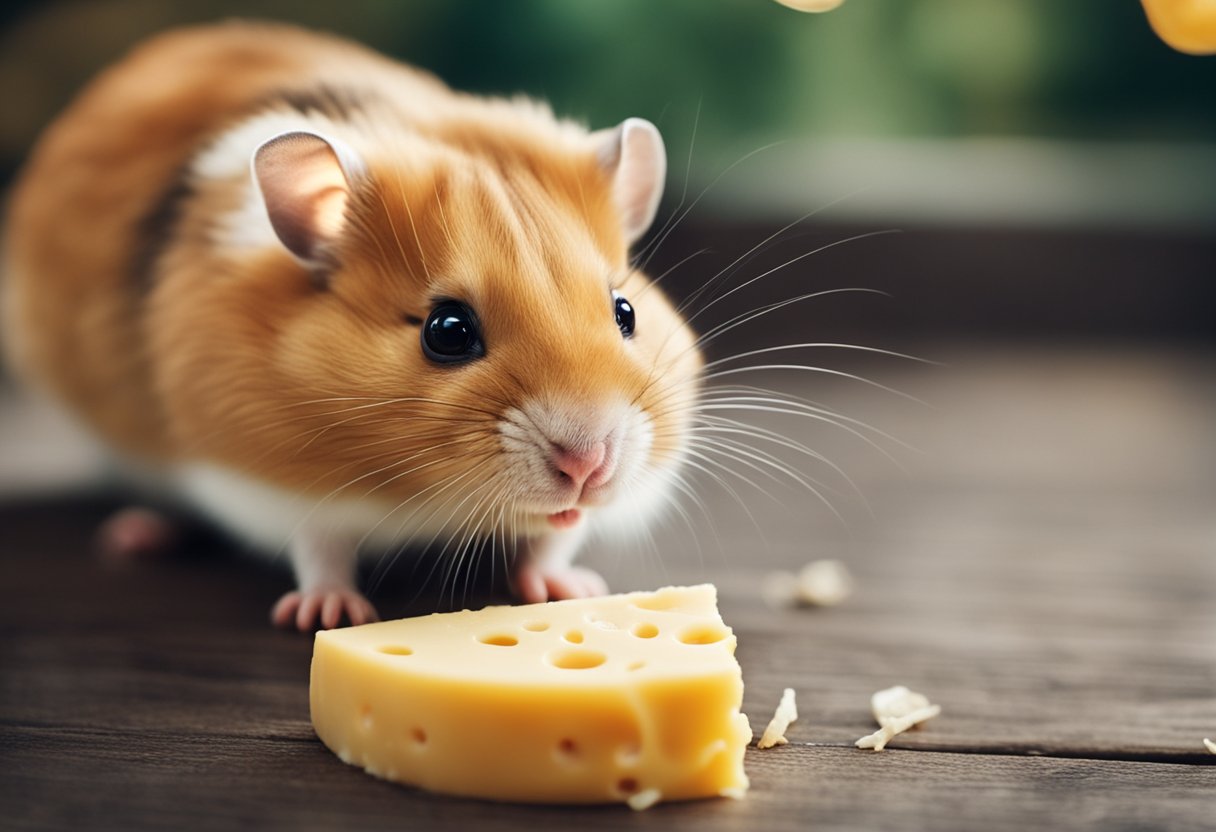
If you are a hamster owner, you may be wondering whether cheese is safe for your furry friend. While cheese is not toxic to hamsters, it is important to consider the nutritional concerns and potential health risks associated with feeding cheese to your pet.
Nutritional Concerns
Cheese is high in fat and calories, which can lead to obesity and other health problems in hamsters. Therefore, it is important to feed cheese to your hamster in moderation and as part of a balanced diet. Some types of cheese, such as mild cheddar, pasteurized goat cheese, and cottage cheese, are low in fat and high in protein, making them a good option for hamsters.
Lactose Intolerance in Hamsters
Hamsters may experience lactose intolerance, which can cause digestive problems such as vomiting and diarrhea. Therefore, it is important to monitor your hamster’s reaction to cheese and other dairy products. If your hamster experiences any adverse reactions, you should remove cheese from its diet.
In conclusion, cheese is not poisonous to hamsters, but it should be fed in moderation and as part of a balanced diet. It is important to consider the nutritional concerns and potential health risks associated with feeding cheese to your pet. If you are unsure about whether to feed cheese to your hamster, you should consult with a veterinarian who specializes in small animal care.
Safe Feeding Practices for Hamsters
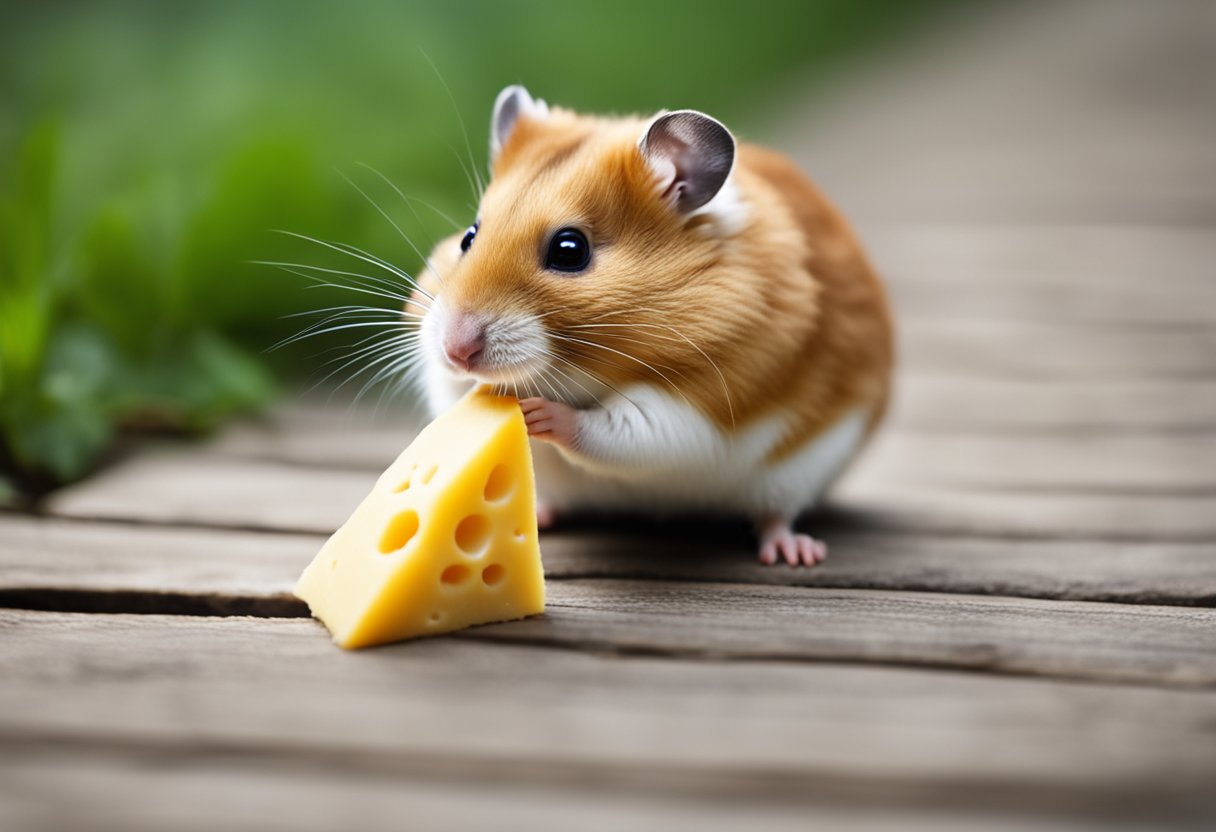
When it comes to feeding your hamster, it’s important to follow safe practices to ensure their health and well-being. Here are some guidelines to keep in mind:
1. Offer a Balanced Diet
Hamsters are omnivores, which means they eat both plants and animals. In the wild, they eat a variety of foods such as seeds, grains, grasses, and insects. In captivity, it’s important to provide a balanced diet that includes a high-quality commercial hamster food, fresh vegetables, and occasional treats.
2. Avoid Overfeeding
Hamsters are prone to obesity and diabetes, so it’s important not to overfeed them. Offer small portions of food and remove any uneaten food to prevent spoilage. Consult with your veterinarian to determine the appropriate amount of food for your hamster based on their age, weight, and activity level.
3. Limit Treats
While treats can be a fun way to bond with your hamster, they should be given in moderation. Too many treats can lead to weight gain and other health issues. Offer treats such as small pieces of fresh fruits and vegetables, cooked eggs, or plain cooked chicken in small amounts.
4. Offer Fresh Water
Provide your hamster with fresh, clean water at all times. Use a water bottle rather than a dish to prevent spills and contamination. Change the water daily and clean the bottle regularly to prevent bacterial growth.
5. Avoid Harmful Foods
Some foods can be harmful or even toxic to hamsters. Avoid feeding your hamster foods such as chocolate, caffeine, garlic, onions, and citrus fruits. Additionally, while cheese is generally safe for hamsters to eat, it should be given in moderation due to its high fat and calorie content. Stick to low-fat, low-salt cheeses such as cottage cheese or mozzarella and only offer small amounts as an occasional treat.
By following these safe feeding practices, you can help ensure your hamster stays healthy and happy.
Resources
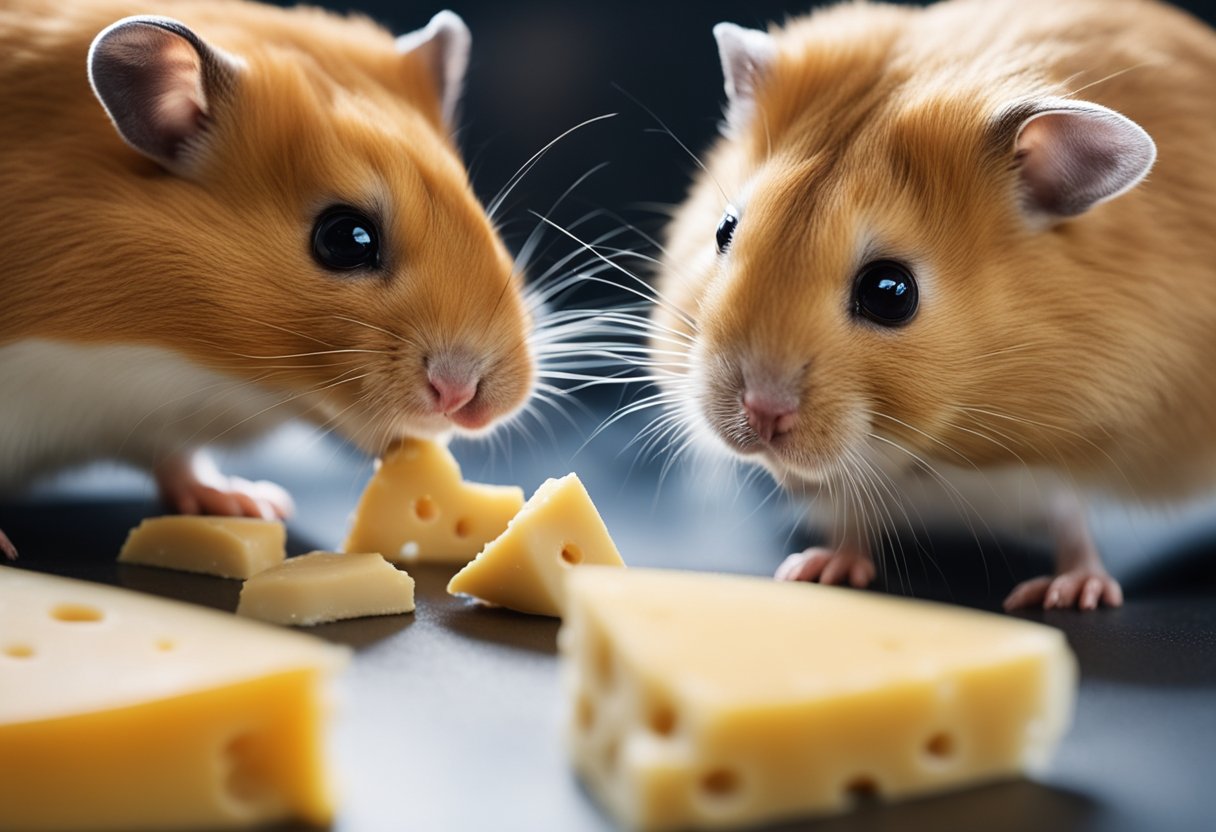
When it comes to feeding your pet hamster, it’s important to make sure that you are giving them the right food. One food that many hamster owners may wonder about is cheese. While cheese is not poisonous to hamsters, it’s important to understand the potential risks and benefits of feeding it to them.
According to The Spruce Pets, cheese is not toxic to hamsters, but too much cheese can lead to health problems. Some hamsters tolerate cheese and other dairy products well, but others experience lactose intolerance. Hamsters may develop vomiting and/or diarrhea after eating cheese or other dairy products. Therefore, it’s important to give cheese to your hamster in moderation.
Pet Keen explains that cheese should be perfectly safe for your hamster to eat. Regardless of the type of cheese involved, there should be nothing about it that makes it toxic for your pet. However, cheese is calorie-dense and high in fat, and since hamsters are prone to both obesity and diabetes, they should not be fed cheese regularly. Cheese can be given as an occasional treat, but it should not be a significant part of their diet.
It’s also important to note that not all types of cheese are safe for hamsters to eat. According to All Things Hamster, hamsters should not be fed cheese that is aged, very soft, high in fat, or blue. These types of cheese can cause digestion problems, choking, teeth problems, diabetes, obesity, and serious health problems for your hamster.
In conclusion, while cheese is not poisonous to hamsters, it should be given to them in moderation and only as an occasional treat. It’s important to choose the right type of cheese and to monitor your hamster for any signs of digestive problems. As with any food, it’s always best to consult with your veterinarian if you have any concerns about your pet’s diet.
Conclusion
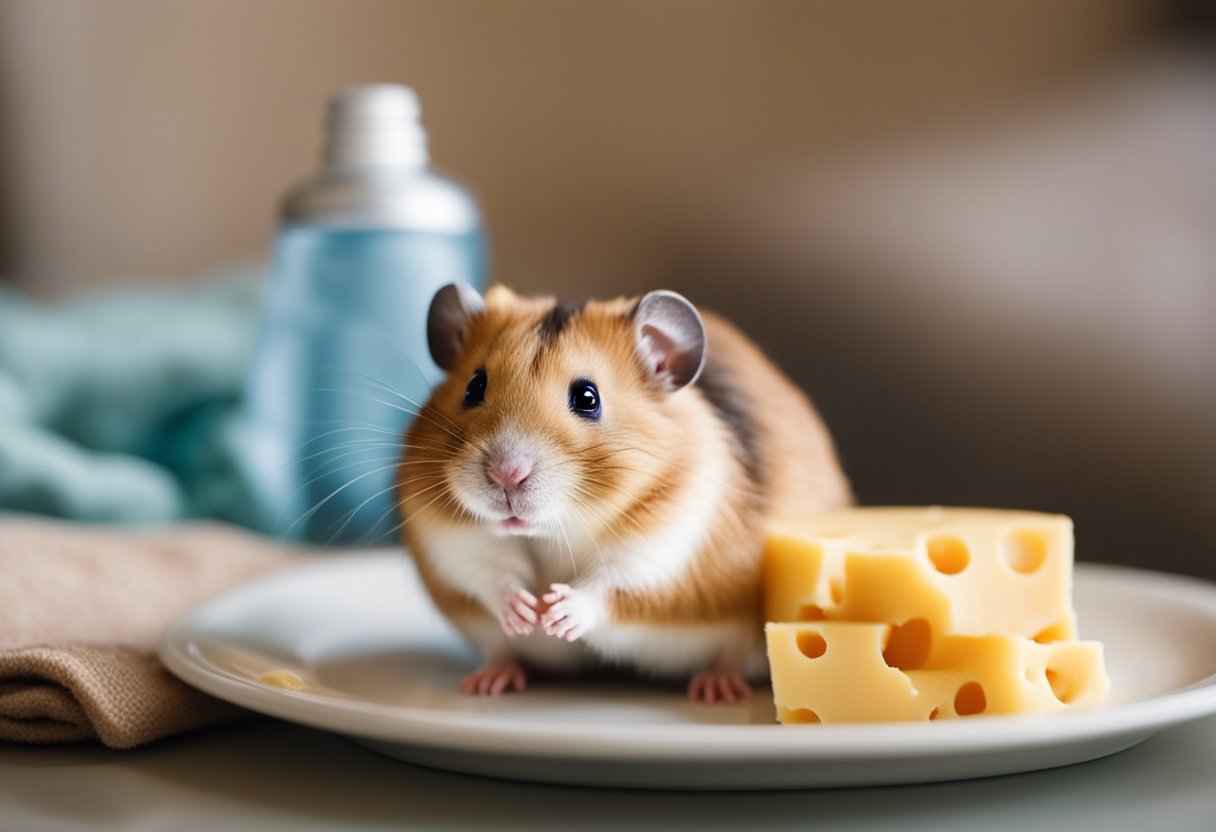
In conclusion, while hamsters can eat cheese, it is important to approach their consumption with caution. Cheese should not be a large part of their diet, but rather an occasional treat.
When feeding your hamster cheese, it is important to select mild, low-fat, and low-sodium varieties in small amounts. Some safe options include mild cheddar, pasteurized goat cheese, and cottage cheese, which is low in fat and high in protein. However, some cheeses should never be given to hamsters, such as blue cheese, which can be toxic to them.
Remember to prioritize a balanced, seed-based diet with healthier treat options like fruits, vegetables, and lean protein sources. Consult with a veterinarian if you have concerns about your hamster’s dietary needs or any adverse reactions to specific foods.
Overall, while cheese can be a tasty treat for your hamster, it should be given in moderation and with careful consideration of its nutritional value.
Frequently Asked Questions
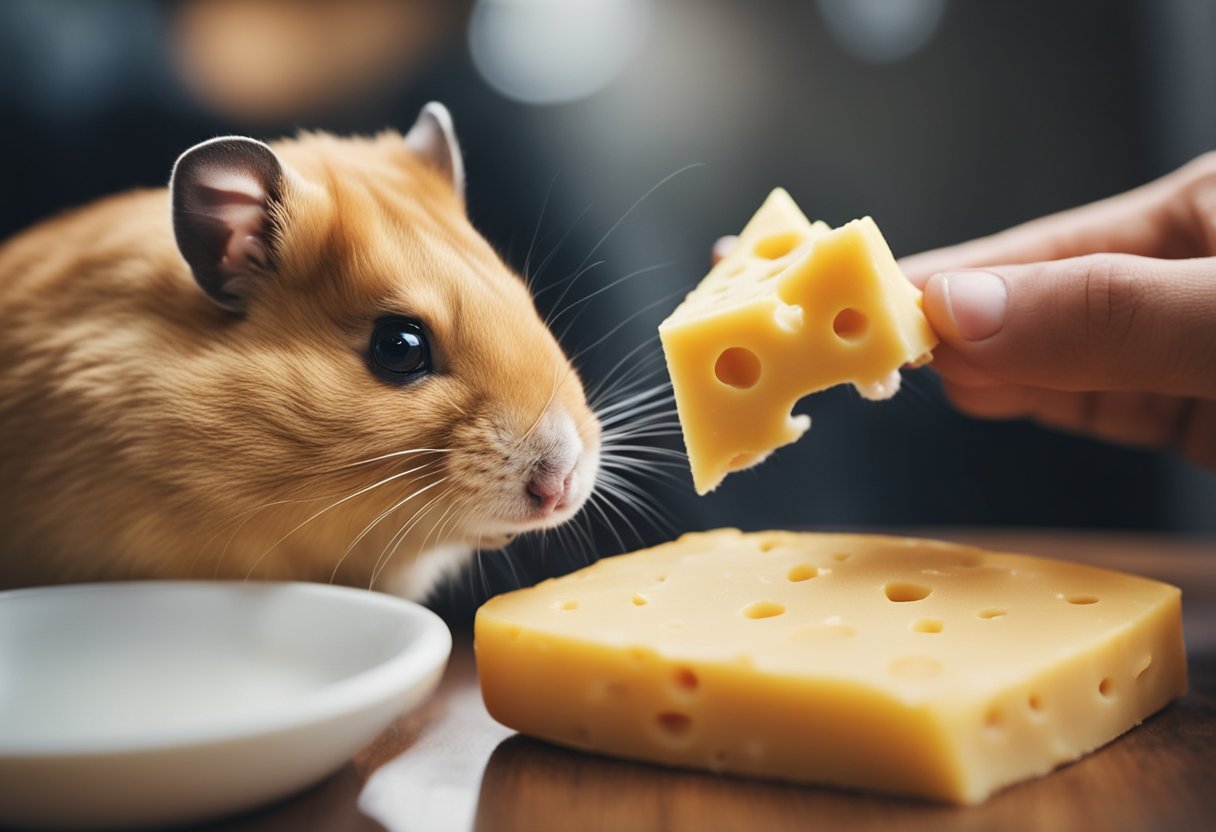
What types of cheese, if any, are safe for hamsters to consume?
Hamsters can eat some types of cheese, but it is important to choose carefully and in moderation. According to Pets Affinity, mild cheddar, pasteurized goat cheese, and cottage cheese are good options, but they should be low in fat and salt. Hard and soft cheeses can also be eaten by hamsters, but they should be given in small quantities.
What are the potential risks of feeding cheese to hamsters?
Hamsters are lactose intolerant, which means that they have difficulty digesting lactose, a sugar found in milk and dairy products. Cheese can cause digestive upset and discomfort for hamsters if consumed in large amounts, according to Petshun. Additionally, cheese is high in fat and sodium, which can lead to weight gain, obesity, and other health issues.
Are there any specific cheeses that should never be given to hamsters?
It is important to avoid giving hamsters any cheese that contains high levels of salt, fat, and preservatives. According to Pets Affinity, cheese balls should never be given to hamsters as they are high in salt, fat, and preservatives, which can cause digestive problems and health issues for your pet.
What symptoms should I look for if my hamster has ingested a harmful food?
If your hamster has ingested a harmful food, they may show symptoms such as diarrhea, bloating, lethargy, and loss of appetite. If you notice any of these symptoms, it is important to contact your veterinarian immediately.
How does dairy affect the digestive system of a hamster?
Dairy products, including cheese, can cause digestive upset and discomfort for hamsters due to their lactose intolerance, according to Petshun. This can lead to diarrhea, bloating, and other digestive problems.
What safe alternatives to cheese can I offer my hamster as a treat?
There are many safe alternatives to cheese that you can offer your hamster as a treat. According to The Spruce Pets, hamsters can enjoy a variety of foods, including fresh vegetables, fruits, and commercially available hamster food as a daily diet. Some safe treats for hamsters include carrots, apples, and small pieces of cooked chicken or egg.
